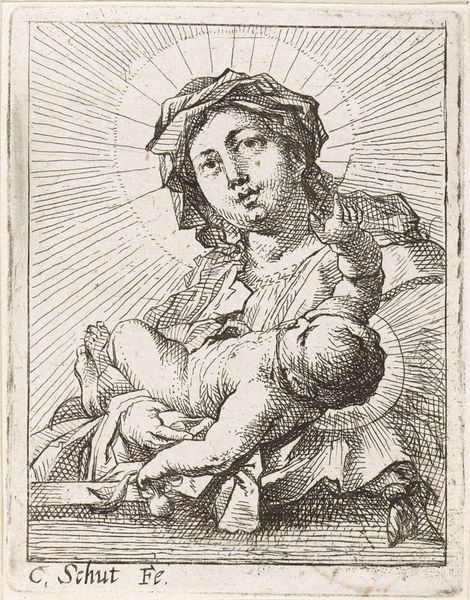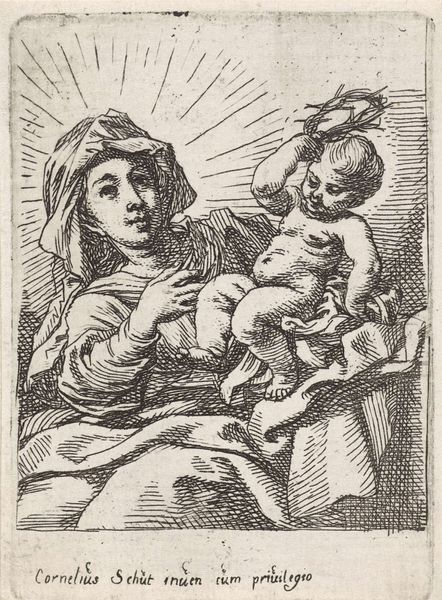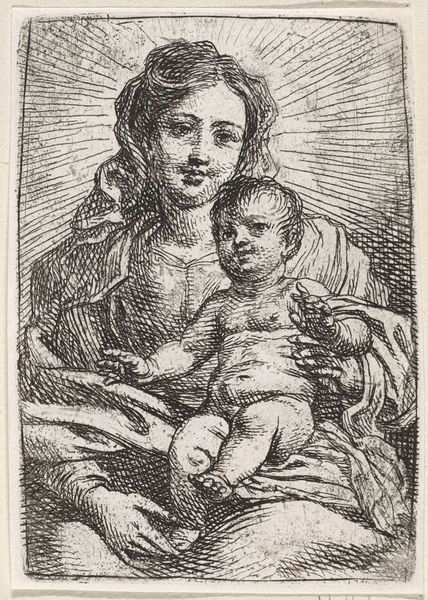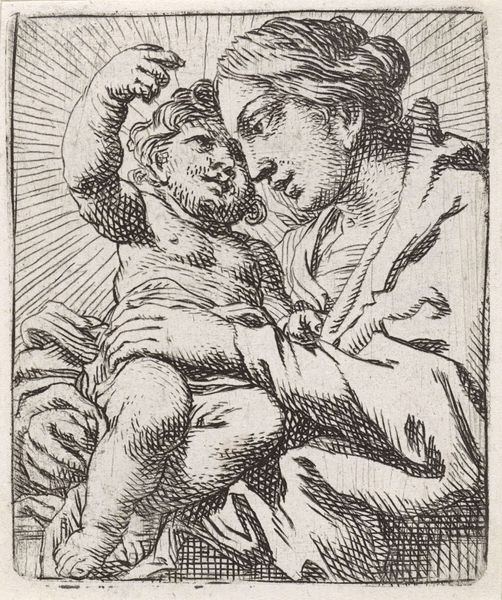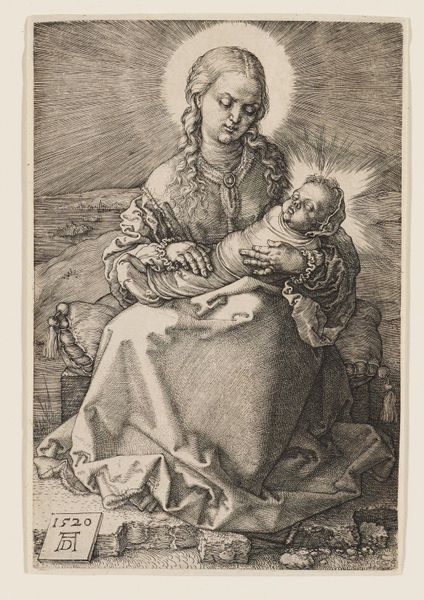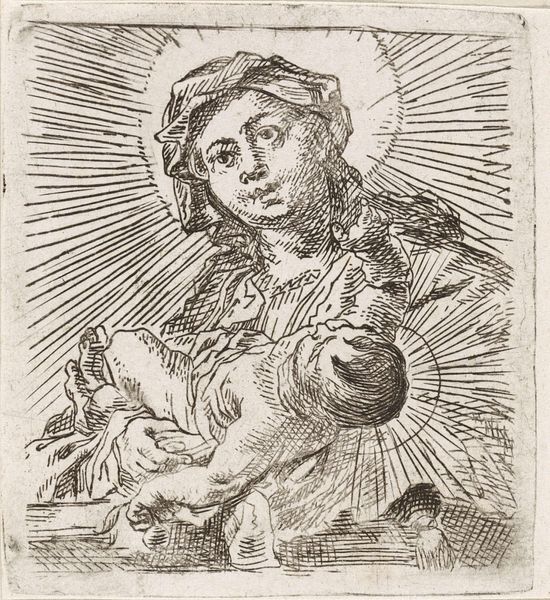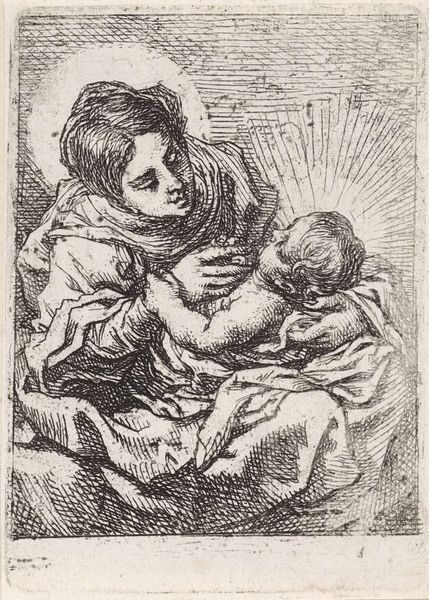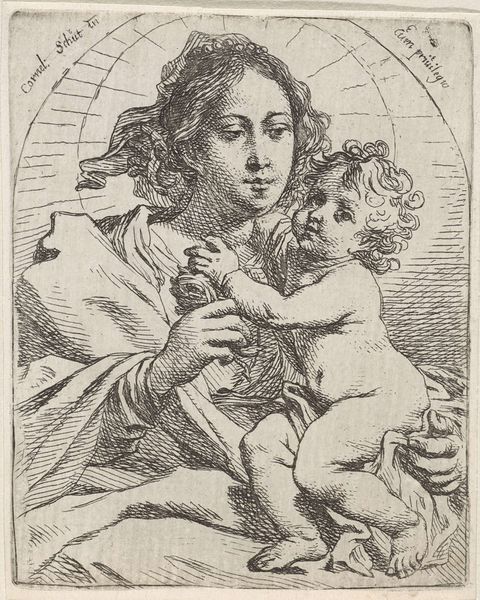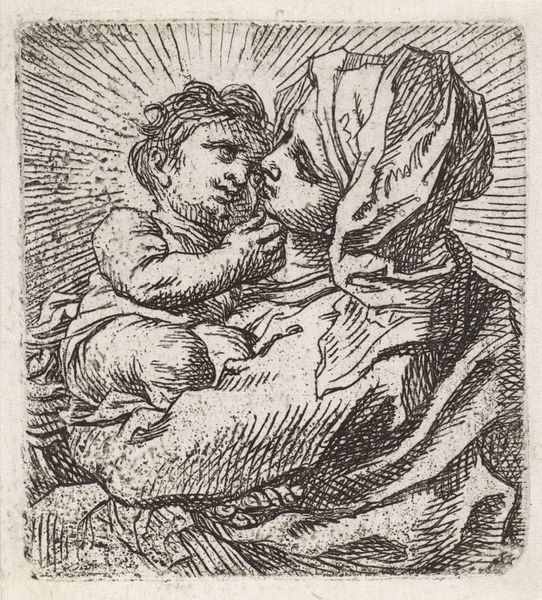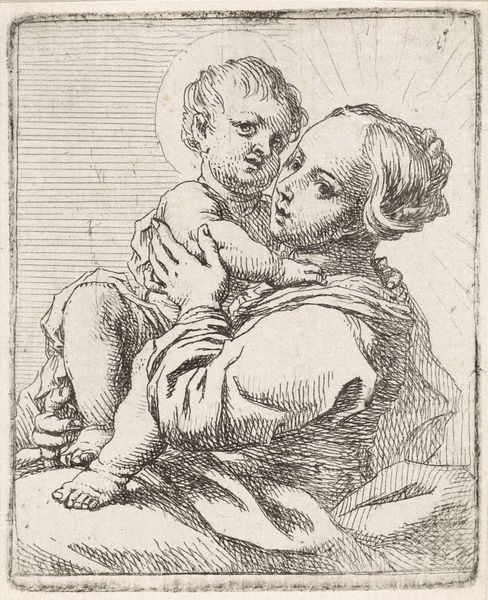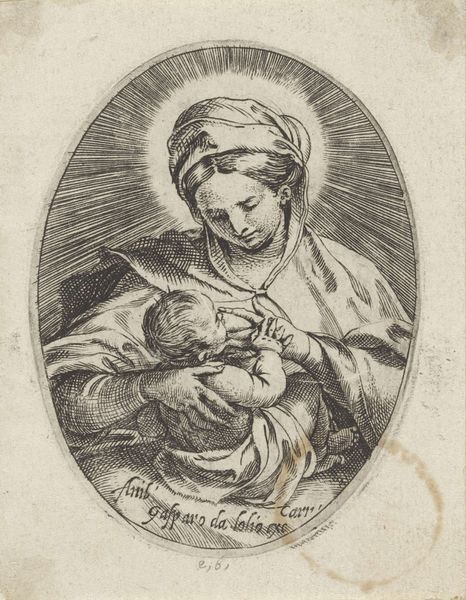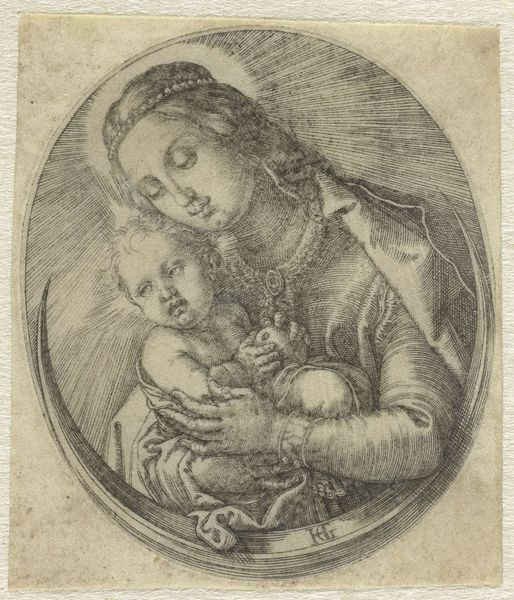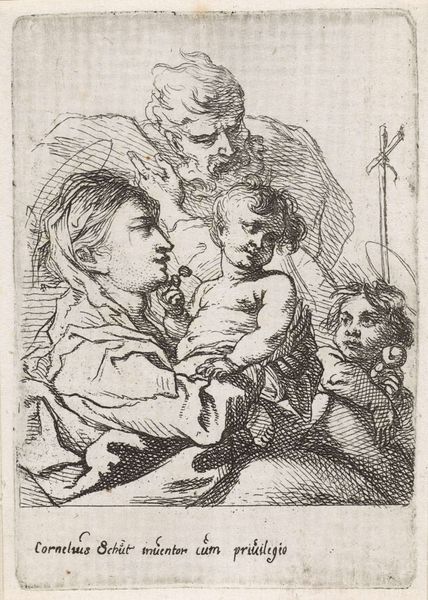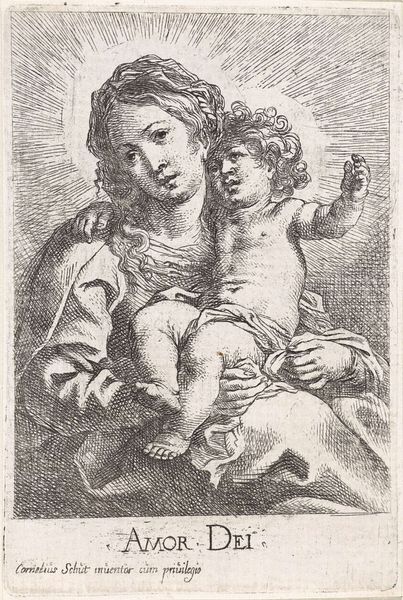
print, engraving
#
portrait
#
facial expression drawing
#
light pencil work
#
baroque
# print
#
pen illustration
#
pen sketch
#
pencil sketch
#
figuration
#
pen-ink sketch
#
line
#
pen work
#
sketchbook drawing
#
portrait drawing
#
pencil work
#
engraving
Dimensions: height 78 mm, width 66 mm
Copyright: Rijks Museum: Open Domain
Editor: Here we have Cornelis Schut's "Madonna met kind," likely created sometime between 1618 and 1655. It's a print, an engraving, held at the Rijksmuseum. The radiating lines behind Mary give her an almost otherworldly quality. How do you interpret this work, especially considering the historical context? Curator: This piece, though seemingly traditional in its subject matter, speaks volumes about the sociopolitical climate of its time. Schut, working in the Baroque period, inherited a world still reeling from the Reformation. The renewed emphasis on the Virgin Mary served not just a religious function but a political one, pushing back against Protestant iconoclasm. How does the print medium itself play into this? Editor: I guess making it a print means it could be reproduced and distributed more widely. So, its message could reach a larger audience? Curator: Precisely. The image of Mary as a powerful, yet nurturing figure was strategically deployed. Notice her gaze—it’s not just maternal, is it? Doesn't it almost have a challenge in it? To me, she's presented almost as a powerful icon for the Catholic Counter-Reformation, a figure to rally around. How do you see that playing out in contrast to depictions of women in the Protestant north? Editor: That’s fascinating! I hadn't considered how much this image is arguing for a certain set of beliefs through its artistic choices. It shows me the historical debates happening through this art. Curator: Exactly. It is a conversation across continents and convictions—revealing to us that visual representation has always been inherently enmeshed in broader struggles over meaning and power. I found our exchange insightful, thank you. Editor: Me too! I'll never look at a Madonna the same way again.
Comments
No comments
Be the first to comment and join the conversation on the ultimate creative platform.
